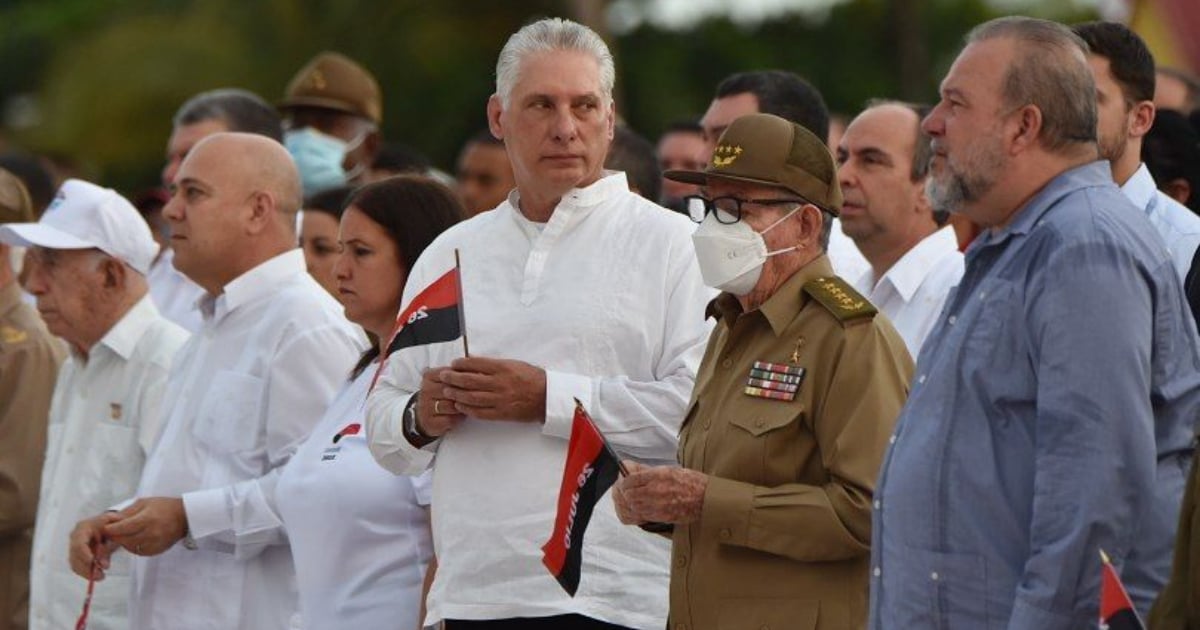The U.S. State Department has once again placed Cuba on its list of countries that do not fully cooperate with anti-terrorism efforts. Secretary of State Marco Rubio confirmed that in 2024, "the Cuban regime did not cooperate fully with the United States on counter-terrorism," resulting in its designation as a "non-fully cooperating country" (NFCC) under Section 40A of the Arms Export Control Act, according to a State Department statement.
The release emphasized that "at least 11 fugitives from U.S. justice, including several facing terrorism-related charges, are currently in Cuba, and the Cuban regime has made it clear that it is unwilling to negotiate their return to stand trial in our country." It further noted that "the Cuban regime's refusal to address this significant issue, along with other recent instances of non-cooperation on law enforcement matters related to terrorism, rendered counter-terrorism cooperation efforts futile in 2024."
Besides Cuba, the State Department identified North Korea, Iran, Syria, and Venezuela as other countries failing to meet cooperation standards. This annual certification by the Secretary of State to Congress, which lists "non-fully cooperating countries" in anti-terrorism efforts, prohibits the sale or licensing of defense articles and services to Cuba and the other four nations.
This list of non-cooperative countries operates separately from the list of State Sponsors of Terrorism. However, the reinstatement signals a clear break from previous policies under the Trump Administration, which sought to distance itself from its predecessor's more lenient approach towards Havana, particularly in its final year. It also sends a strong message to allies and multilateral organizations that Washington is unwilling to ease its stance on the Cuban regime.
"Today's certification that Cuba is not fully cooperating with the United States' anti-terrorism efforts is further evidence that the Trump Administration will not overlook countries that provide sanctuary to American fugitives," a senior State Department official told The Miami Herald.
The issue of returning U.S. fugitives residing in Cuba has long been a sticking point in diplomatic relations between Washington and Havana. In early May, Secretary of State Rubio demanded the extradition of Joanne Chesimard, also known as Assata Shakur, who was convicted of murdering a New Jersey state trooper in 1973 and has been living in Cuba for decades. In 2013, Assata Shakur became the first woman on the FBI's list of most wanted terrorists. U.S. authorities describe her as a "domestic terrorist" and warn that she should be considered "armed and dangerous." The FBI is offering a reward of up to $1,000,000 for information leading directly to her capture.
The possibility of Shakur's extradition has been discussed on several occasions, even during bilateral negotiations between the U.S. and Cuba, but no progress has been made. Currently, it is estimated that more than 70 American fugitives reside on the island.
In May 2024, during his final year in office, President Joe Biden's administration removed Cuba from the list of countries not cooperating with Washington's counter-terrorism efforts. At that time, the decision was seen as a preliminary move by the Democratic administration to also remove Cuba from the list of State Sponsors of Terrorism, which eventually happened on January 14, 2025, just six days before Biden left office. However, on January 20, mere hours after being sworn in for a second term, President Donald Trump reversed this decision, placing Cuba back on the list of State Sponsors of Terrorism, signaling that removing Cuba from the list did not align with U.S. interests or those of his new presidency.
Cuba had been removed from the list of State Sponsors of Terrorism in 2015 by Barack Obama, but was reinstated in 2021 during Trump's first administration.
FAQs on Cuba's Non-Cooperation with Anti-Terrorism Efforts
Why did the U.S. reinstate Cuba on the list of non-cooperative countries?
The U.S. reinstated Cuba on this list because the Cuban regime failed to cooperate fully with American counter-terrorism efforts, including not negotiating the return of fugitives facing terrorism-related charges.
Who is Assata Shakur and why is she significant in U.S.-Cuba relations?
Assata Shakur, also known as Joanne Chesimard, is a fugitive convicted of murdering a New Jersey state trooper in 1973. She has been living in Cuba for decades, and her extradition has been a point of contention in U.S.-Cuba diplomatic discussions.
What are the implications of being on the U.S. list of non-cooperative countries?
Countries on this list face restrictions on the sale and licensing of defense articles and services from the United States, impacting their access to military and strategic resources.
